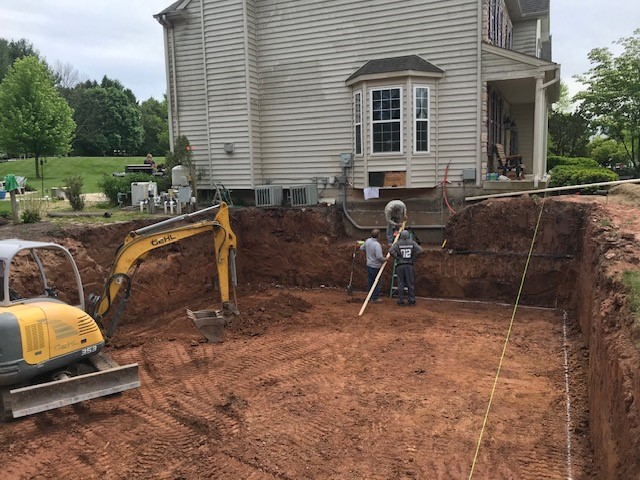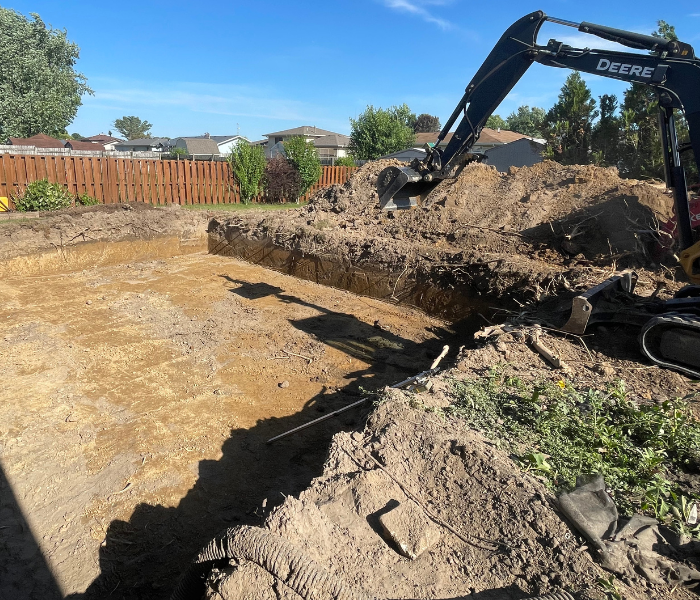Dump Truck Companies in Ohio - Reliable Dump Truck Providers Across Ohio
Dump Truck Companies in Ohio - Reliable Dump Truck Providers Across Ohio
Blog Article
Comprehensive Excavation Strategies: Grasping the Principles for Success
In the world of building and construction and civil engineering, the importance of effective excavation methods can not be overstated. The mindful planning, specific execution, and meticulous focus to information required in excavation tasks demand a detailed method that encompasses various fundamental elements. From preliminary soil analysis to the application of safety procedures and regular progress tracking, grasping these core components is important for accomplishing success in any type of excavation undertaking. However, real proficiency lies not just in understanding these fundamentals however in perfectly incorporating them to browse the complexities of excavation projects with skill.
Understanding Excavation Project Planning

Successful excavation projects are built on the structure of comprehensive and precise planning. The initial phase of any type of excavation project is the preparation stage, where essential decisions are made that can significantly influence the result of the task. During this stage, it is crucial to collect all relevant information concerning the website, consisting of topographical surveys, soil composition, and any kind of prospective dangers that might exist. Recognizing the job spending plan, scope, and timeline restraints is essential for creating a detailed excavation strategy that makes sure the job's success.
One secret element of excavation project planning is the growth of a comprehensive timeline that outlines the sequence of turning points, activities, and deadlines. This timeline serves as a roadmap for the job group, permitting them to track progress and make needed adjustments to make sure the job stays on timetable. Furthermore, a distinct budget that accounts for all expenses, consisting of devices rental, labor expenses, and products, is essential for staying clear of cost overruns and delays. By very carefully considering all these elements throughout the preparation phase, excavation jobs can be carried out successfully and effectively, resulting in successful outcomes.
Dirt Analysis and Website Analysis
Carrying out complete dirt analysis and site examination is a critical step in the prep work stage of any kind of excavation project. Soil analysis entails identifying the make-up, framework, and homes of the soil at the excavation site. This info is important for understanding the soil's bearing capability, wetness material, and possibility for erosion, which are vital aspects in identifying the excavation methods and equipment required for the task.
Website assessment exceeds dirt evaluation and encompasses a broader assessment of the general website conditions. This analysis includes determining any kind of potential dangers, such as underground utilities, ecological concerns, or unsteady terrain, that might influence the excavation process. By completely assessing the site, job supervisors can establish reliable excavation approaches that focus on security, efficiency, and environmental management.
Using innovative technologies like ground-penetrating radar, dirt sampling, and drone surveys can improve the accuracy and effectiveness of dirt analysis and website evaluation. Investing time and resources in these initial steps can eventually conserve time and stop pricey delays or difficulties throughout the excavation procedure.
Devices Selection and Usage
Efficient excavation projects count greatly on strategic devices choice and utilization to ensure optimum performance and performance. Choosing the best tools for the job is crucial in optimizing effectiveness and reducing downtime. Elements such as the kind of soil, depth of excavation, and job scope play a substantial role in identifying one of the most appropriate tools for the job available.

In enhancement to picking the proper devices, correct utilization is vital to job success. Operators should be trained to deal with the devices securely and successfully - lancaster excavation. Regular maintenance checks and timely repairs help prevent failures and ensure consistent performance throughout the job
Precaution and Rules Compliance
In the realm of excavation jobs, focusing on precaution and compliance with laws is extremely important to ensuring a safe and secure and legally sound operational setting. Safety steps incorporate a series of practices, consisting of performing thorough website analyses, applying appropriate signs and obstacles, and providing sufficient safety training for all personnel involved in the excavation procedure. Adherence to laws, such as OSHA demands in the United States, makes certain that the excavation project satisfies the needed criteria to secure employees, bystanders, and the surrounding atmosphere.

Tracking Development and Adjusting Techniques
How can project supervisors efficiently track the innovation of excavation tasks and adjust their methods accordingly to maximize outcomes? Surveillance development is important for making sure that excavation tasks remain on track and fulfill deadlines. Task supervisors can use numerous devices and methods to track development, such as day-to-day development reports, routine website examinations, and progressed surveillance modern technologies like drones and GPS tracking systems. By constantly checking the job's development, managers can recognize any type of prospective hold-ups or issues at an early stage and take proactive procedures to address them.

Final Thought
In verdict, understanding the principles of thorough excavation techniques is essential for the success of any type of task. By comprehending job preparation, examining soil and site problems, picking ideal equipment, following safety regulations, and monitoring development, task managers can ensure a effective and smooth excavation process. Carrying out these strategies will cause successful results and reduce prospective threats or obstacles throughout the excavation task.
The initial phase of any kind of excavation project is the planning stage, where critical choices are made that can dramatically influence the result of the job. Understanding the task extent, budget plan, and timeline constraints is crucial for creating a detailed excavation strategy that guarantees the job's success.
How can predict managers effectively track the innovation of excavation tasks and adapt you can try these out their methods accordingly to optimize end results? By carefully monitoring progress and being prepared to adjust strategies, job managers can enhance the total success of helpful hints excavation jobs.
By comprehending job preparation, assessing soil and site problems, selecting proper devices, complying with security policies, and checking progression, project supervisors can make sure a effective and smooth excavation procedure.
Report this page